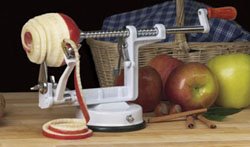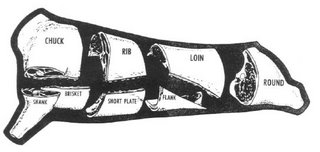
 Tonight I’m reading the Mendocino County Historical Society Newsletter, Volume 44, Number 4. You can join by sending $20 ($25 for a couple) to 603 West Perkins Street, Ukiah, CA 95482. Each month I eagerly look forward to the latest issue.
A couple of months ago I wrote, You Gotta Ring Them Bells, a risqué and ribald story set in Philo, in the hot Anderson Valley about an hour by car over narrow, twisting roads from our cool northern California coast.
Tonight I’m reading the Mendocino County Historical Society Newsletter, Volume 44, Number 4. You can join by sending $20 ($25 for a couple) to 603 West Perkins Street, Ukiah, CA 95482. Each month I eagerly look forward to the latest issue.
A couple of months ago I wrote, You Gotta Ring Them Bells, a risqué and ribald story set in Philo, in the hot Anderson Valley about an hour by car over narrow, twisting roads from our cool northern California coast. In this month’s newsletter, there was a short article about the apple-growing Gowan family of Philo, which of course reminded me of another story about my own family.
After we completed the basement, and later the house, in Point Arena in 1955, I remember a flat-bed truck stopped in front. It was driven by Cecil Gowan, and as I found out in the newsletter, the year before the Gowans had started a business in Philo, Gowan’s Oak Tree, selling apples. He had loaded his truck with boxes of apples, and drove over to the coast to sell them door-to-door off his truck. Mom bought a box, and that night we started a new family project that we did regularly for several years – we baked apple pies.
Brother Ron and I sat at a table at the back of the kitchen and used an ingenious device that peeled and cored the apples while all we had to do was turn a handle. We then quartered the apple, and sliced the quarters into apple pie pieces. Then we added sugar, cinnamon, nutmeg, salt, flour, and margarine, and stirred it all together.
At this point, Mom added the skill factor. She prepared the pie crusts in the pie tins (I think eight at a time), added the filling, placed and trimmed the upper crust, and then baked them. We repeated this process until we had twenty-four freshly baked pies, which we then wrapped all but one in tin foil and put in the deep freezer.
We would have the chosen pie for dinner that night, and one of the frozen ones for each succeeding dinner until we ran out of pies, usually in about twenty-four days. When we ran out of pies, Mom would call the Gowans and ask them to please bring by a box of apples on their next trip to the coast. It usually wasn’t long before we were making the next batch of pies.
At about this time, 1955, we started doing our own butchering. We had already been raising calves for beef for several years, but we had left the slaughtering and butchering up to the meat markets downtown – Uneda Meats, operated by Bill and Delia Hay, and if memory serves me, the other meat market was run by Garth and Alice Rawls.
How did Uneda Meats get its name? Delia Hay was from Italy, and had a thick Italian accent. When she and Bill opened the meat market, Delia would greet customers, “You needa meat?”
Almost fifty years later in New York I burst out laughing. A Uneda Taxi had just driven by.
Pop would kill the beef with a well aimed rifle shot to the head, and then we used a block and tackle to hang the carcass from a platform we built between two limbs of a cypress tree in our hedge row. Using an incredibly sharp skinning knife made for him by Arnold Cremonini, our Point Arena town blacksmith, Pop gutted and skinned the carcass, then used the knife and a hack saw to cut it in half. We then carried each side of beef to a rack mounted high in our back porch over the basement steps, wrapped it in burlap, and hung it from the rack to cool and age for about a week.
The first time we did our own butchering, Pop borrowed a government bulletin about beef inspection and grading. On its center page there was a picture of a side of beef, surrounded by labeled pictures of different cuts of beef with lines pointing to where on the side the cut came from. Brother Ron and I stood by the hamburger grinder, a large machine powered by a third of a horsepower electric motor. Pop started cutting and sawing. As he finished cutting off a steak, he would compare it to the picture. If it looked right, he passed it to Mom to wrap and label for the freezer. If he thought it didn’t quite pass inspection, he tossed it to us to make hamburger. We ended up with quite a bit of very high quality hamburger that first time, until Pop got a feel for making steaks and roasts instead of hamburger.
Mom packed all the steaks and roasts for freezing, but Ron and I got to wrap and label the hamburger. By the time we finished that evening, we had filled our old chest freezer almost to the top.
We also raised chickens, rabbits, sheep, pigeons, and on one occasion a pig. Although we lived in town, I doubt if our lives would have been much different if we lived outside of town on a farm. There’s not much more you could do on a farm than Pop had us doing in town.
Previous Point Arena stories:
The Great Point Arena Fire of 1954 - Everyone likes to help
Pete Bjornavik, a Point Arena character - Fun to be around
Gopher Capital of the World? - There's a bit of larceny in all of us
1960 NCAA Basketball Championships - Thanks, "Chub" Ohleyer - A very generous man
Sweethearts Dance 1960 - Bad weather makes a special memory
Number, Please? - Personal connections before the dial telephone
Puddles the Pup - A big part of the best childhood in the whole world
You Gotta Ring Them Bells - Some wedding nights you don't forget, but you try!
After The Summer of 1954 - 7th and 8th grade, 60 students, one great teacher
The House We Built - Brother Ron and I dug the basement in 1954, with help from "Prince"
The Old High School - When we came to Pt. Arena in 1949, we lived in one big room of an abandoned high school building
No comments:
Post a Comment